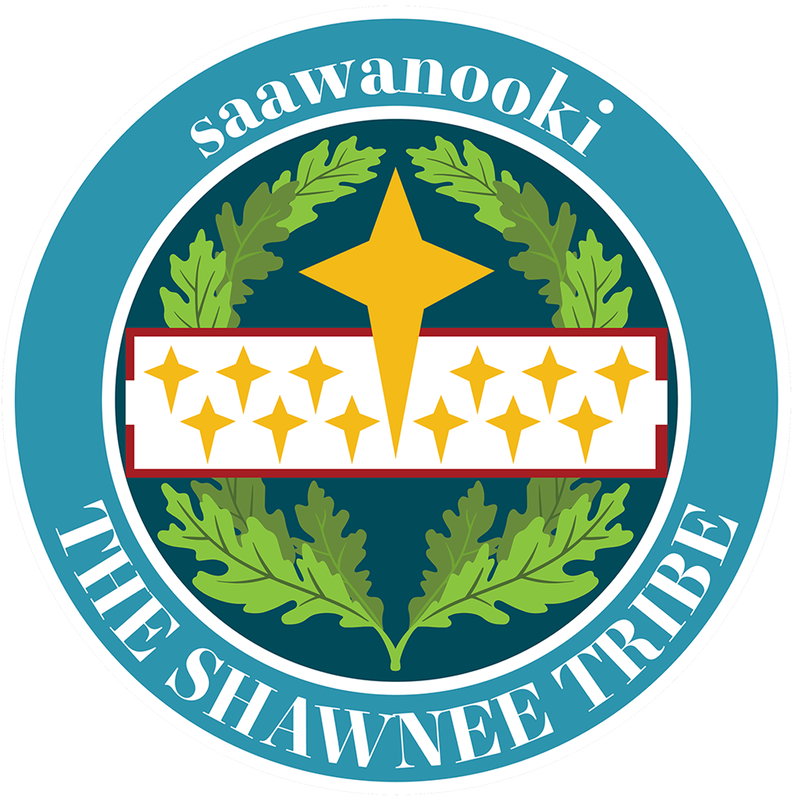|
Dr. Tsuneya Ikezu - October 3, 2023
"Microglia and Extracellular Vesicles in Neurologic Disorders" William K. Warren, Jr. Frontiers in Neuroscience Lecture 12:00 pm - 1:00 pm Program in the LPCH auditorium 11:00am - 11:45am Lunch will be served beforehand in the LPCH banquet room Dr. Tsuneya Ikezu is a Professor in the Department of Neuroscience and Director, Molecular NeuroTherapeutics Laboratory at the Mayo Clinic in Florida. Research in the clinic focuses on neuroimmune cell-mediated regulations of neuronal function, neurogenesis, neuroinflammation, and neurodegeneration. Researchers in Dr. Ikezu’s lab are particularly interested in how the innate immune-related cells, extracellular vehicles, and molecules in the central nervous system influence the pathology and progression of select neurodegenerative disorders such as Alzheimer’s disease and related disorders Prior to this, Dr. Ikezu was Professor of Pharmacology and Neurology at Boston University School of Medicine and led the Laboratory of Molecular NeuroTherapeutics for 10 years. He has authored more than 120 journal articles, which were cited over 23,000 times, edited the textbook Neuroimmune Pharmacology (Springer Nature) and served on several editorial boards. Over his career, Dr. Ikezu has received Vada Kinman Oldfield Alzheimer’s Research Award (2000), Inge Grundke Iqbal Award from Alzheimer’s Association (2016) and recently Jack Spivack Excellence in Neuroscience Award (2018). Dr. Ikezu received his M.D. and Ph.D. from University of Tokyo School of Medicine and completed post-doctoral trainings at Massachusetts General Hospital and Cleveland Clinic Foundation. Dr. Ikezu’s lab webpage: The Molecular Neurotherapeutics Laboratory at Mayo Clinic Learning objectives:
Saint Francis Health System designates this live activity for a maximum of 1 AMA PRA Category 1 Credit(s)™. Physicians should claim only the credit commensurate with the extent of their participation in the activity. For Psychologists: The Oklahoma State Board of Examiners of Psychologists, the American Psychological Association and the Oklahoma Psychological Association recognize AMA PRA Category 1 credit™. Saint Francis Health System is accredited by the OSMA For Social Workers: Saint Francis Health System is an approved provider of continuing education for social worker through the Oklahoma State Board of Licensed Social Workers for 1 hour Category 1 Clinical. (CEP Number - 20230007) For CADCs and LADCs Saint Francis Health System is accredited as a provider of continuing education programs for CADCs and LADCs through the Oklahoma Board of Licensed Alcohol and Drug Counselors. (1 hour) The LPC/LMFT This event as been approved by the State Board of Behavioral Health Licensure (BBHL) for 1 hour of CE. For questions , email: Lauren Haguewood at [email protected]
0 Comments
Tulsa, Okla. – A trailblazing study conducted by researchers at the Laureate Institute for Brain Research (LIBR) in Tulsa, Okla., has made significant strides with a novel technique for treating anorexia nervosa (AN), an eating disorder characterized by low body weight, body image abnormalities, and anxiety. The study, “The impact of floatation therapy on body image and anxiety in anorexia nervosa: a randomized clinical efficacy trial,” appears in the peer-reviewed scientific journal eClinicalMedicine, a part of The Lancet Discovery Science initiative.
The researchers identified several immediate and sustained effects of Floatation-REST (Reduced Environmental Stimulation Therapy) in inpatients with anorexia nervosa. Also known as “float therapy”, Floatation-REST is a non-pharmacological treatment that involves floating effortlessly in a shallow pool of warm water saturated with Epsom salt, in a lightproof, soundproof, humidity- and temperature-controlled environment, and it is increasingly used by the general public as a stress reduction tool. In the study, the anorexia nervosa inpatients randomized to receive floatation-REST reported immediate and repeated reductions in body image dissatisfaction and improved anxiety relative to a comparison group of anorexia nervosa inpatients randomized to receive care as usual, whose symptoms were unchanged. Moreover, the body image improvements in the floatation-REST group remained after the treatment and lasted for up to six months. “This breakthrough offers a new therapeutic direction in treating anorexia nervosa, a psychiatric disorder known for its challenging prognosis and high mortality rate,” said psychiatrist Sahib Khalsa, MD, PhD, Director of Clinical Operations at LIBR, and senior author of the study. “Anxiety is a common co-occurrence in anorexia nervosa that does not respond well to standard anxiolytic medications such as benzodiazepines,” he added. “The large anxiety reductions induced by float therapy in these patients suggest that this tool presents a potent opportunity to treat anxiety via non-pharmacological means in anorexia nervosa. Additional research is needed to examine the anxiolytic effects of float therapy in other eating disorders.” “These findings also make way for new forms of treatment for eating disorders which, in conjunction with traditional treatments, may help to alleviate diagnostic features of AN that are more difficult to treat, such as body image,” commented co-first author Emily Choquette, PhD, a clinical psychologist and postdoctoral scholar at LIBR. “The reliable and sustained effect of floatation-REST on body image dissatisfaction suggests that it may be studied as a tool to augment the effectiveness of traditional psychotherapies.” Because anorexia nervosa is a severe and persistent psychiatric disorder, the search for effective treatments is ongoing. “This study underscores the importance of continually seeking innovative approaches and broadening the horizons of existing therapeutic options,” added Dr. Scott Moseman, MD, CEDS, Medical Director of the Laureate Eating Disorders Program. “These findings may pave the way for new forms of treatment, such as float-assisted psychotherapy, which aim to further enhance the body image and anxiety improvements obtained via existing evidence-based interventions.” The research team was led by senior author Sahib Khalsa, MD, PhD, Director of Clinical Operations at the Laureate Institute for Brain Research, Director of the LIBR Float Clinic and Research Center, Associate Professor in the Oxley College of Health Sciences at The University of Tulsa, and conducted in close collaboration with psychiatrist Scott Moseman, MD, CEDS, Medical Director of the Laureate Eating Disorders Program from which the participants were recruited. Co-first authors on the study were Emily Choquette PhD, a post-doctoral research associate at LIBR, and Michael Flux PhD, a former lab volunteer and collaborator at LIBR. Additional collaborators included clinical neuropsychologist Justin Feinstein, PhD, President and Director of the nonprofit Float Research Collective. The research was supported by the Laureate Institute for Brain Research and was conducted at LIBR between March 2018 and February 2021. CONTACT: For more information about the study, contact Sahib Khalsa, MD, PhD, at Laureate Institute for Brain Research at [email protected]. ABOUT LAUREATE INSTITUTE FOR BRAIN RESEARCH (LIBR) Launched in 2009, the Laureate Institute for Brain Research is home to a multidisciplinary team of scientists and clinical research staff who apply neuroimaging, genetic, pharmacological, neuropsychological and psychotherapeutic methods to investigate the neurobiology and treatment of psychiatric disorders. LIBR’s creation was supported by The William K. Warren Foundation for the purpose of conducting studies aimed at developing more effective treatments and/or prevention strategies for these disorders. The studies are led by scientists from diverse backgrounds, including psychiatry, psychology, physics, cognitive neuroscience, developmental neuroscience, population neuroscience and genetics, molecular and cellular neurobiology, and computer science. Tulsa, Okla. – (August 7, 2023) – The Laureate Institute for Brain Research (LIBR) in Tulsa, OK has received funding through the prestigious National Institutes of Health (NIH) Director’s Pioneer Award (DP1 Mechanism) for an innovative collaborative research project “Kipiyecipakiciipe - Coming Home” between the LIBR and the Shawnee Tribe. The research will be led by Dr. Evan J. White, Principal Investigator and Director of Native American Research at LIBR. This partnership, which is supported by a $5.9 million, five-year NIH DP1 grant (DP1DA058986), aims to establish clinical cultural neuroscience as an indispensable tool in community-driven research to reduce substance misuse and disorder.
The goal of the project is to address substance use problems that impact Native American people at higher rates than the general population. “Being involved in traditional ways of life has many benefits, and research shows that reducing and preventing substance use is one benefit,” said White. “Our goal is to use modern clinical neuroscience to help understand the way this impacts the brain to promote substance use recovery and prevention.” The project will combine two important approaches: involving the community to consider cultural perspectives and knowledge; and using neuroscience to understand brain processes relevant for substance use disorders. “By combining these approaches, the project aims to make progress in reducing the disparities in substance use problems and understanding how the brain is involved in addiction and recovery,” added White. To do this, the project will work closely with the Tribe, using brain imaging techniques to study how cultural engagement affects the brain and its relationship to substance use. “The Shawnee Tribe will help to define what cultural engagement means for the community,” continued White. “This is important because culture is a complex concept that includes many aspects of people's lives. There is deep cultural knowledge in communities about well-being and living a healthy life. In my view, our job as researchers is to use our scientific toolkit to translate this knowledge into data and information that can be used by medical policymakers and providers to promote wellbeing in Native communities.” As the Shawnee Tribe builds its Behavioral & Mental Health Department, tribal leadership hopes to ensure Shawnee cultural knowledge and practices play a central role. A key component of this collaborative research project is a Community Advisory Board comprising Shawnee citizens and ceremonial leaders; the board will inform and oversee Dr. White & LIBR’s research process. “Shawnee folks deserve Shawnee ways of healthcare,” said Chief Ben Barnes. “I think it’s imperative that our cultural knowledge be the bedrock of any health and human services we provide to our people. We’re extremely fortunate to have experts like Dr. White as one of our own, and I can’t wait to see what his research unravels for not only our nation but Indian Country and healthcare in general.” Dr. Evan White is an enrolled Absentee Shawnee citizen with Eastern Shawnee and Shawnee Tribe ancestry on his paternal grandmother’s side. He is also a devoted husband and father to two young children, a Shawnee Language Immersion Program student, and actively involved at the White Oak ceremonial grounds and in the Native American Church of Oklahoma. The funding program to which Dr. White’s team at LIBR applied—the NIH Director’s Pioneer Award mechanism—seeks to identify scientists with high-impact ideas that may be risky or at a stage too early to fare well in the traditional peer review process. The mechanism is designed to support a small number of investigators of exceptional creativity who propose bold and highly innovative research approaches with the potential for high impact on significant problems in any area relevant to NIH. Depending on funding, approximately 7 applications are expected to be funded each year. During the years 2018-2022, the success rate for applicants was 4.5%. “The project’s results will provide valuable information on how cultural factors can protect against substance use problems. It will also serve as a model for studying cultural factors in other minority groups, and social determinants of health broadly with the goal of improving health for everyone,” commented White. The research team will be led by principal investigator Evan J. White, Ph.D., Principal Investigator, Director of Native American Research, Director of Electroencephalography Core at LIBR and Research Associate Professor in the Oxley College of Health Sciences at The University of Tulsa. Kyle Miller, Director of Behavior and Mental Health, will be the lead investigator from the Shawnee Tribe and primary liaison between the LIBR team and the Community Advisory Board. Dr. White’s research for this project will continue through mid-2028. News and outcomes from the study will be published online through the National Institutes of Health’s RePORTER tool. Scan here to see “Kipiyecipakiciipe – Coming Home” on RePORTER: [QR code to https://reporter.nih.gov/search/NWnyJ1uLq0qH2IJPRzZBdg/project-details/10740237] “Kipiyecipakiciipe - Coming Home” is supported by the National Institute on Drug Abuse of the National Institutes of Health under Project Number DP1DA058986. The content reported in this publication is solely the responsibility of the authors and does not necessarily represent the official views of the National Institutes of Health. ### CONTACT: For more information about the project, contact Evan J. White, Ph.D. at Laureate Institute for Brain Research at [email protected]. ABOUT LAUREATE INSTITUTE FOR BRAIN RESEARCH (LIBR) Launched in 2009, the Laureate Institute for Brain Research (laureateinstitute.org) is home to a multidisciplinary team of scientists and clinical research staff who apply neuroimaging, genetic, pharmacological, neuropsychological and psychotherapeutic methods to investigate the neurobiology and treatment of psychiatric disorders. LIBR’s creation was supported by The William K. Warren Foundation for the purpose of conducting studies aimed at developing more effective treatments and/or prevention strategies for these disorders. The studies are led by scientists from diverse backgrounds, including psychiatry, psychology, physics, cognitive neuroscience, developmental neuroscience, population neuroscience and genetics, molecular and cellular neurobiology, and computer science. ABOUT THE SHAWNEE TRIBE The Shawnee Tribe is a sovereign nation of more than 4,000 citizens living across North America and abroad. Tribal headquarters are located in Miami, Oklahoma. For more information, visit shawnee-nsn.gov. |
Archives
July 2024
Categories
All
|
VISIT LIBR6655 South Yale Ave. Tulsa, OK 74136
918.502.5100 | [email protected] |
|
© 2009-2024. All Rights Reserved. Laureate Institute for Brain Research
Site powered by Laureate Institute for Brain Research







 RSS Feed
RSS Feed